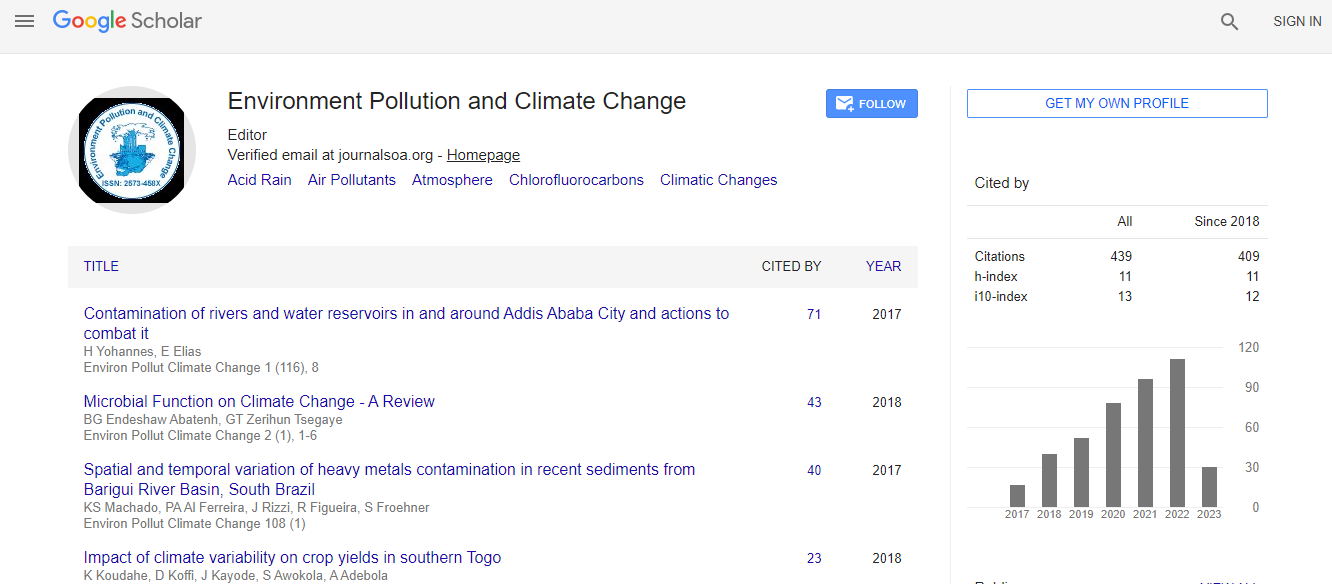Review Article
Contamination of Rivers and Water Reservoirs in and Around Addis Ababa City and Actions to Combat It
Hamere Yohannes* and Eyasu EliasCenter for Environmental Science, College of Natural Science, Addis Ababa University, Addis Ababa, P.O. box 1176, Ethiopia
- *Corresponding Author:
- Hamere Yohannes
Center for Environmental Science
College of Natural Science, Addis Ababa University
Addis Ababa, P.O. box 1176, Ethiopia
Tel: +251 91 6235485
E-mail: hamerey@gmail.com; hamerenew@gmail.com
Received date: February 08, 2017; Accepted date: March 13, 2017; Published date: March 20, 2017
Citation: Yohannes H, Elias E (2017) Contamination of Rivers and Water Reservoirs in and Around Addis Ababa City and Actions to Combat It. Environ Pollut Climate Change 1:116.
Copyright: © 2017 Yohannes H, et al. This is an open-access article distributed under the terms of the Creative Commons Attribution License, which permits unrestricted use, distribution, and reproduction in any medium, provided the original author and source are credited.
Abstract
This work focuses on intensive review of various documents, research papers and reports to identify the main source; impact and trend of river and water reservoirs pollution in and around Addis Ababa city, the capital city of Ethiopia. Water is a vital resource needed for the survival of humans and cities. Ethiopia is often referred to as the “water tower” of eastern Africa because of the many rivers. Addis Ababa is endowed with numerous seasonal and perennial small streams that flow to the little and great Akaki rivers, then feeding into the Awash basin and so forth into the lakes of the Rift Valley. As result of fast population growth, uncontrolled urbanization and industrialization and poor waste management practices Addis Ababa water resource highly polluted which threaten human health and ecosystem function as whole. The rivers in Addis Ababa are simply used as a receptacle of all kinds of wastes released in the city. There is a high amount of waste disposal in the river and riverbanks from municipal source (municipal solid and liquid wastes), liquid wastes from toilet, open urination and defecation. Other waste sources come from construction buildings, fuel stations, garage operations and congested settlements. Addis Ababa hosts about 65% industries of the country and more than 90% of the industries discharge their waste to nearby river without proper treatment.

 Spanish
Spanish  Chinese
Chinese  Russian
Russian  German
German  French
French  Japanese
Japanese  Portuguese
Portuguese  Hindi
Hindi 
